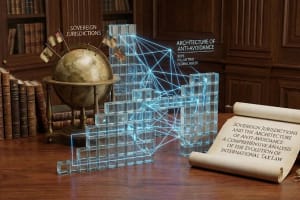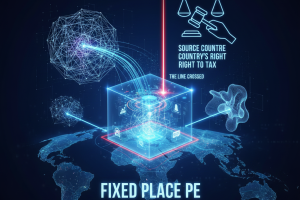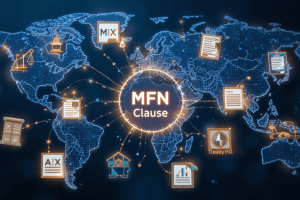
Shrink-wrap software is not Royalty - Mumbai ITAT

Mumbai ITAT allowed the appeal of assessee by relying upon the judgement in the assessee's own cases for the AY 2003-04 to AY 2011-12.
During the course of assessment proceedings, it was submitted by the assessee that the Tribunal in its own case for A.Y 2003-04, A.Y 2005-06, A.Y 2006-07, A.Y 2007-08, A.Y 2009-10 & A.Y 2011-12, had held the receipts earned by the assessee under similar fact pattern as its “business income”, which in the absence of its “Permanent Establishment” (PE) in India were not taxable in India. Further, the assessee drawing support from the “Software Distribution Agreements submitted, that the distributors/resellers sold the shrink-wrap software bought in the fully packaged condition, as received from the assessee to the end users in India i.e without opening the package. It was further submitted by the assessee, that the SolidWorks software was given to the customers in India along with and pursuant to an end user license agreement. Although the end user license agreement was not physically signed, it was buit-in-as a part of the installation process and would ‘pop up’ on the computer screen, and had to be indispensably ‘accepted’ by the user, as it was only then the user could operate the software. It was further submitted by the assesee, that the end-user had limited rights to use the software for internal purposes, right to copy the software on hard disk or to make copies for archive purpose. It was the clam of the assessee, that the end-user was divested of any right to transfer the software or reproduce the same, as the same per the terms of the license agreement were specifically prohibited. The assessee also made submissions before the A.O on the scope of the term ‘royalty’ as per ‘Explanation 2’ to Sec. 9(1)(vi); the meaning of the term ‘copyright’ under the Copyright Act, 1957; the amendment introducing ‘Explanation 4’ below Sec. 9(1)(vi) and its impact on software distributor and on the DTAA; and the definition of ‘royalty’ under the India-USA tax treaty.
A.O after deliberating on the contentions advanced by the assessee, therein observed, that as per the ‘License and Subscription Service Agreement’, SolidWorks granted the end-user a non-exclusive nontransferable license to use the software and the printed or electronic documentation. I was observed by the A.O, that in lieu of the single user license which entitled the end-user to use one copy of the software or a multiple user or network license, as the case may be, the end-user would pay license fees. Admittedly, as claimed by the assessee, it was observed by the A.O that the software was owned by SolidWorks and the copyright, trademark and proprietary rights were retained by it and not transferred to the end-user. At the same time, the A.O held a conviction that the software was not goods or tangible property but was an intangible intellectual property, which being similar to patent, invention, design, secret formula etc. would fall within the meaning of ‘process’ as mentioned in ‘Explanation 2’ to the definition of ‘royalty’ under the Act. In support of his aforesaid view, the A.O relied on the CBDT Circular No. 621 of 19/12/1991 to hold that payment for acquisition of software was to be held as ‘royalty’. Insofar the claim of the assessee that the issue was covered in its favor by the orders of the Tribunal in its own case for the preceding years, the A.O observed that the same had been assailed by the revenue before the Hon’ble High Court, and thus had not yet attained finality.
Also, it was observed by the A.O, that the Hon’ble High Court of Karnataka in the case of CIT Vs. Samsung Electronic Co. Ltd (2012) 345 ITR 494 (Kar), had concluded, that the payments received by the assessee from the resellers in India for the acquisition of computer software was in the nature of ‘royalty’, and thus chargeable to tax. Also, the A.O in order to drive home his aforesaid conviction relied on the amendment to ‘Explanation 4’ to Sec. 9(1)(vi) of the Act, that was made available on the statute vide the Finance Act, 2012, w.r.e.f 01.06.1976.
The Tribunal concluded that the factual situation pertaining to the year under consideration had not witnessed any change as in comparison to the immediately preceding year, therefore, respectfully following the view taken by the Tribunal in the assesses own case for A.Y 2015-16 in ITA No. 7027/Mum/2018, dated 10.01.2020, we herein conclude that the addition made by the A.O by treating the sale receipts of shrink-wrap software as ‘royalty’ cannot be sustained, and is hereby vacated.
Citation: ITA No. 7313/MUM/2019
Author, Manish Harchandani, CA
Disclaimer: The contents of this article are solely for informational purpose. It does not constitute professional advice or a formal recommendation. While due care has been taken in preparing this document, the existence of mistakes and omissions herein is not ruled out. Harchandani & Associates does not accepts any liabilities for any loss or damage of any kind arising out of any inaccurate or incomplete information in this document nor for any actions taken in reliance thereon.











